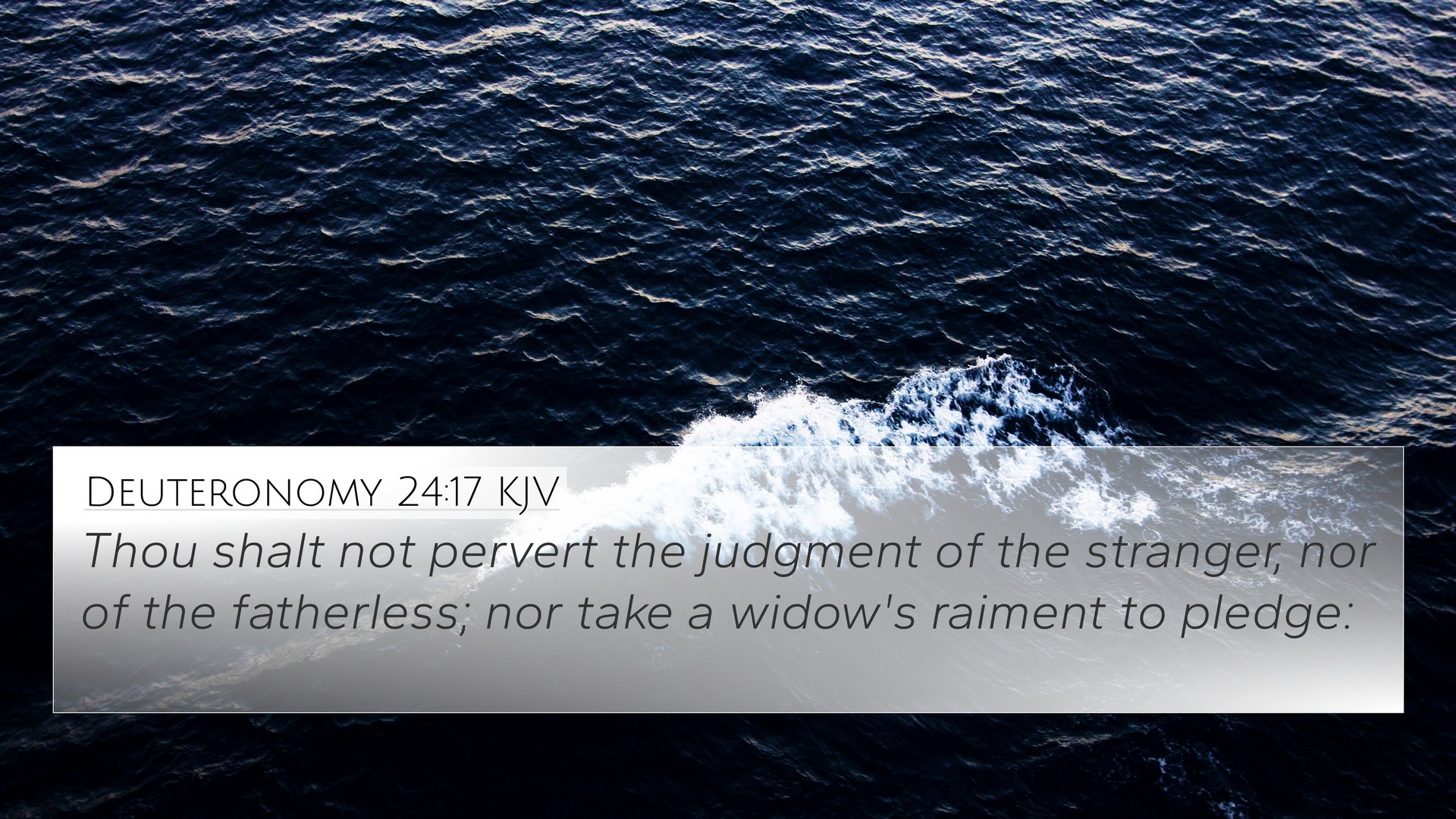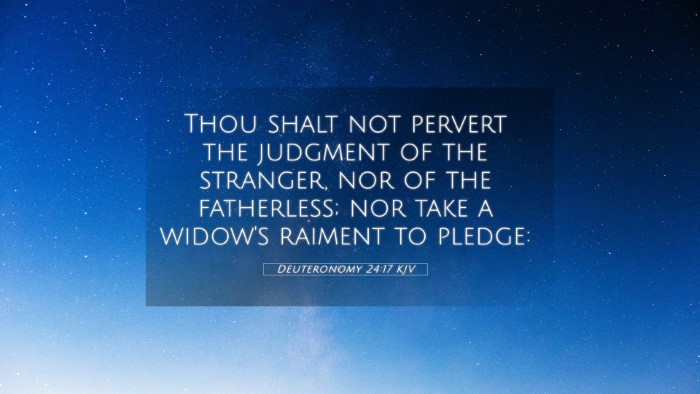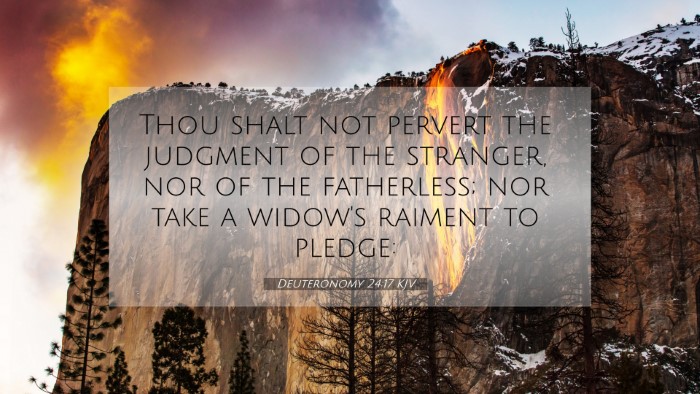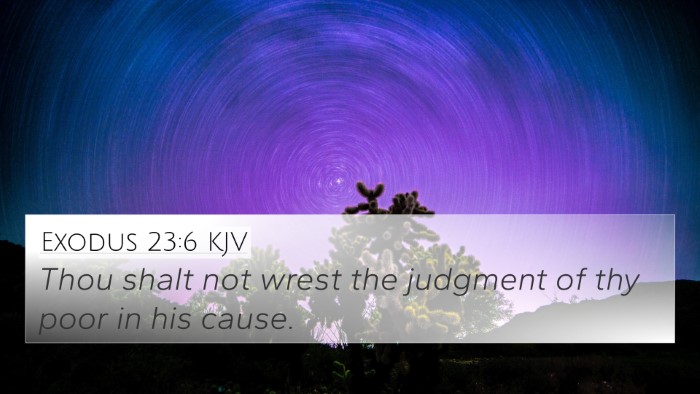This section features a detailed cross-reference designed to enrich your understanding of the Scriptures.
Below, you will find carefully selected verses that echo the themes and teachings related to Deuteronomy 24:17 KJV. Click on any image to explore detailed analyses of related Bible verses and uncover deeper theological insights.
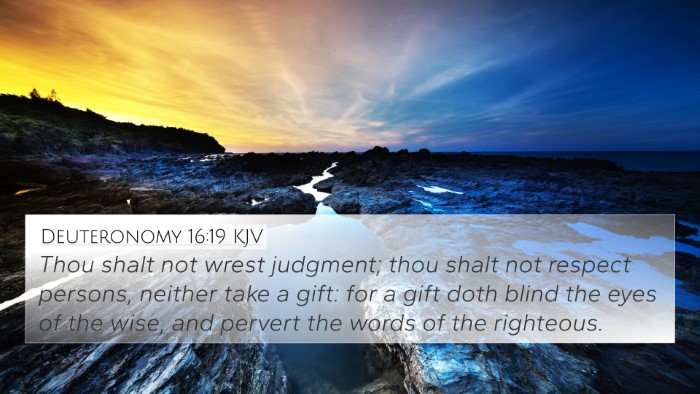 Deuteronomy 16:19 (KJV) »
Deuteronomy 16:19 (KJV) »
Thou shalt not wrest judgment; thou shalt not respect persons, neither take a gift: for a gift doth blind the eyes of the wise, and pervert the words of the righteous.
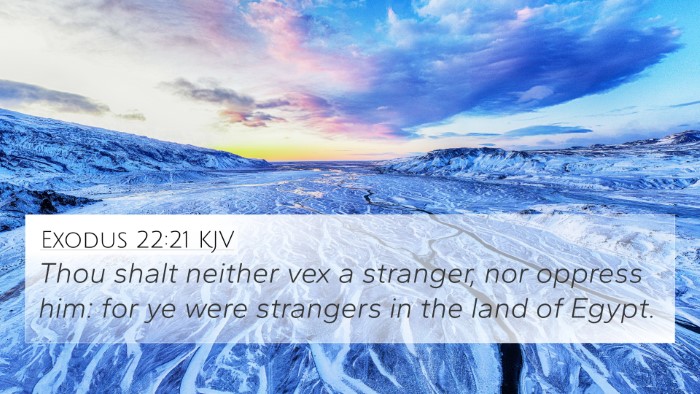 Exodus 22:21 (KJV) »
Exodus 22:21 (KJV) »
Thou shalt neither vex a stranger, nor oppress him: for ye were strangers in the land of Egypt.
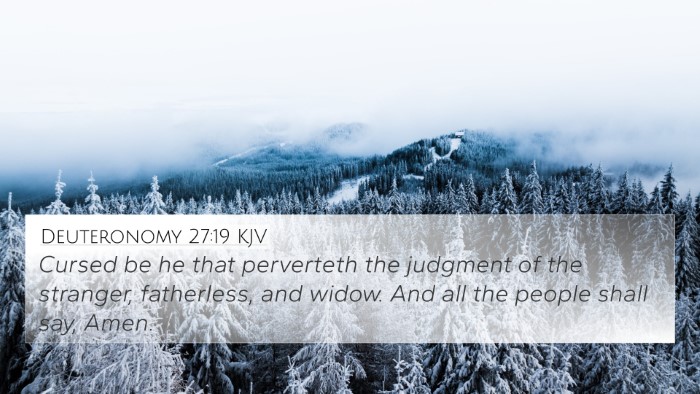 Deuteronomy 27:19 (KJV) »
Deuteronomy 27:19 (KJV) »
Cursed be he that perverteth the judgment of the stranger, fatherless, and widow. And all the people shall say, Amen.
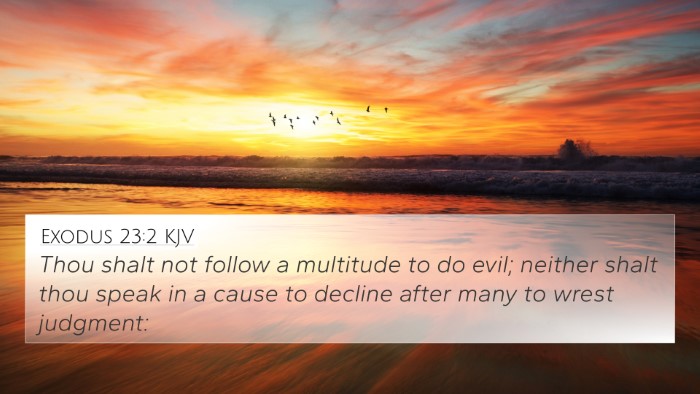 Exodus 23:2 (KJV) »
Exodus 23:2 (KJV) »
Thou shalt not follow a multitude to do evil; neither shalt thou speak in a cause to decline after many to wrest judgment:
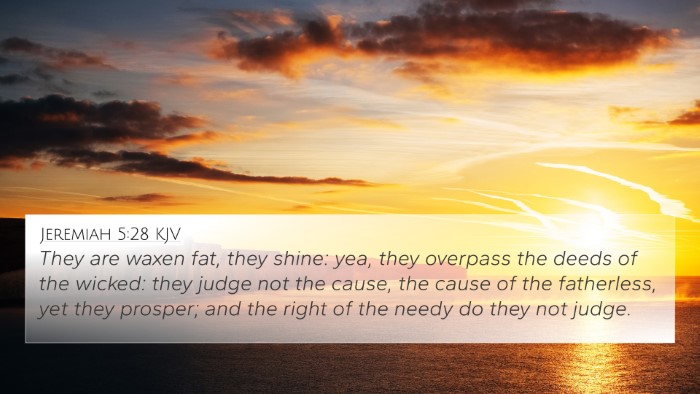 Jeremiah 5:28 (KJV) »
Jeremiah 5:28 (KJV) »
They are waxen fat, they shine: yea, they overpass the deeds of the wicked: they judge not the cause, the cause of the fatherless, yet they prosper; and the right of the needy do they not judge.
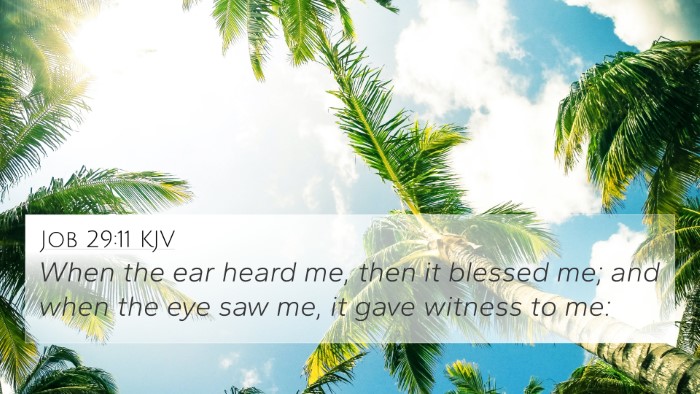 Job 29:11 (KJV) »
Job 29:11 (KJV) »
When the ear heard me, then it blessed me; and when the eye saw me, it gave witness to me:
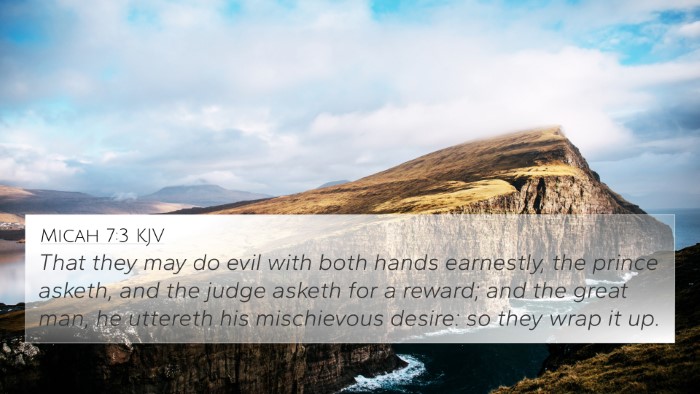 Micah 7:3 (KJV) »
Micah 7:3 (KJV) »
That they may do evil with both hands earnestly, the prince asketh, and the judge asketh for a reward; and the great man, he uttereth his mischievous desire: so they wrap it up.
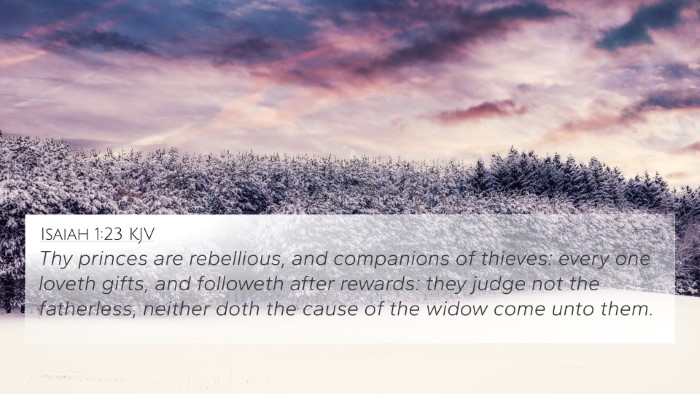 Isaiah 1:23 (KJV) »
Isaiah 1:23 (KJV) »
Thy princes are rebellious, and companions of thieves: every one loveth gifts, and followeth after rewards: they judge not the fatherless, neither doth the cause of the widow come unto them.
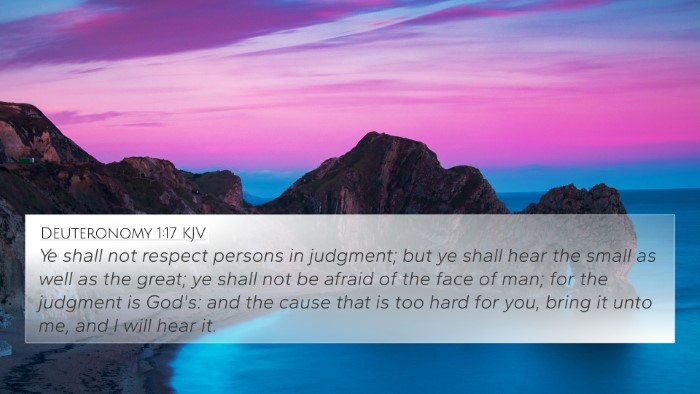 Deuteronomy 1:17 (KJV) »
Deuteronomy 1:17 (KJV) »
Ye shall not respect persons in judgment; but ye shall hear the small as well as the great; ye shall not be afraid of the face of man; for the judgment is God's: and the cause that is too hard for you, bring it unto me, and I will hear it.
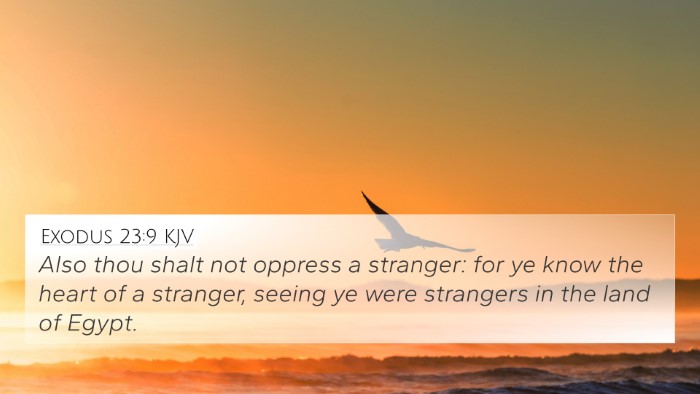 Exodus 23:9 (KJV) »
Exodus 23:9 (KJV) »
Also thou shalt not oppress a stranger: for ye know the heart of a stranger, seeing ye were strangers in the land of Egypt.
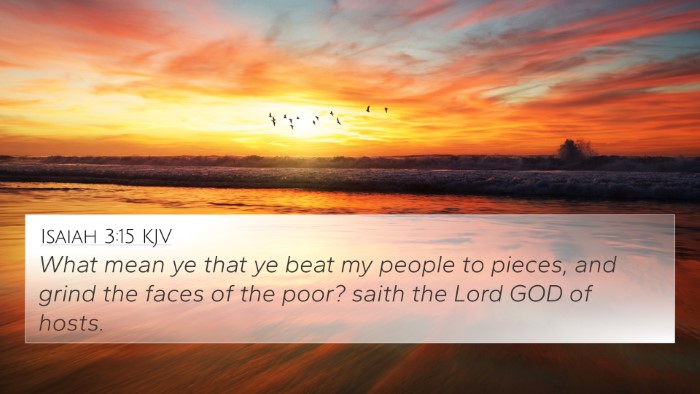 Isaiah 3:15 (KJV) »
Isaiah 3:15 (KJV) »
What mean ye that ye beat my people to pieces, and grind the faces of the poor? saith the Lord GOD of hosts.
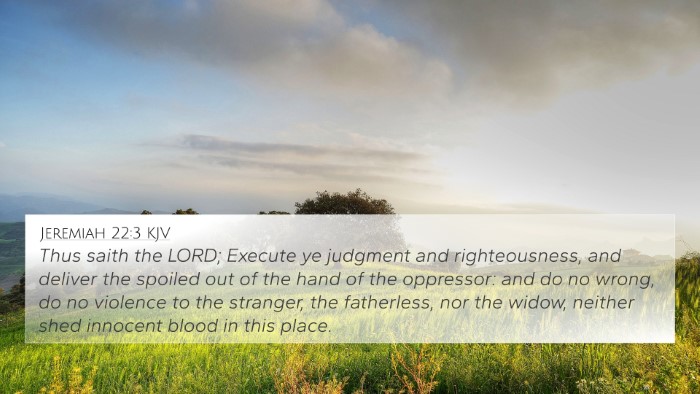 Jeremiah 22:3 (KJV) »
Jeremiah 22:3 (KJV) »
Thus saith the LORD; Execute ye judgment and righteousness, and deliver the spoiled out of the hand of the oppressor: and do no wrong, do no violence to the stranger, the fatherless, nor the widow, neither shed innocent blood in this place.
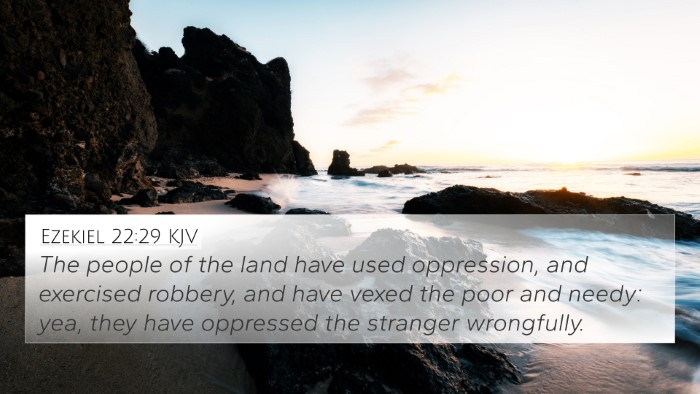 Ezekiel 22:29 (KJV) »
Ezekiel 22:29 (KJV) »
The people of the land have used oppression, and exercised robbery, and have vexed the poor and needy: yea, they have oppressed the stranger wrongfully.
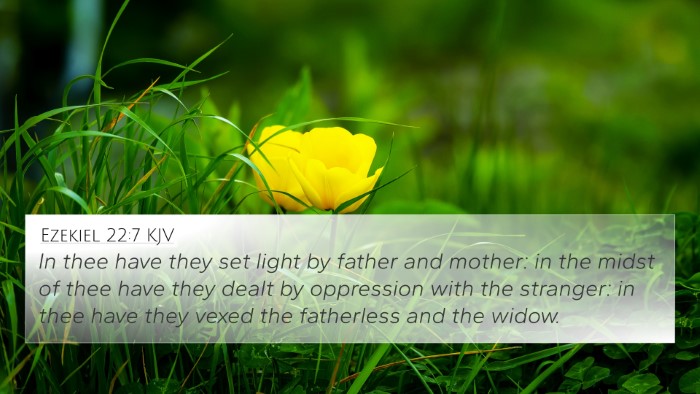 Ezekiel 22:7 (KJV) »
Ezekiel 22:7 (KJV) »
In thee have they set light by father and mother: in the midst of thee have they dealt by oppression with the stranger: in thee have they vexed the fatherless and the widow.
 Amos 5:7 (KJV) »
Amos 5:7 (KJV) »
Ye who turn judgment to wormwood, and leave off righteousness in the earth,
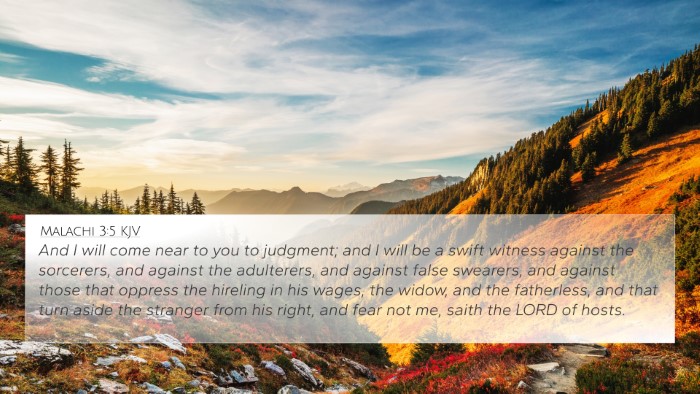 Malachi 3:5 (KJV) »
Malachi 3:5 (KJV) »
And I will come near to you to judgment; and I will be a swift witness against the sorcerers, and against the adulterers, and against false swearers, and against those that oppress the hireling in his wages, the widow, and the fatherless, and that turn aside the stranger from his right, and fear not me, saith the LORD of hosts.
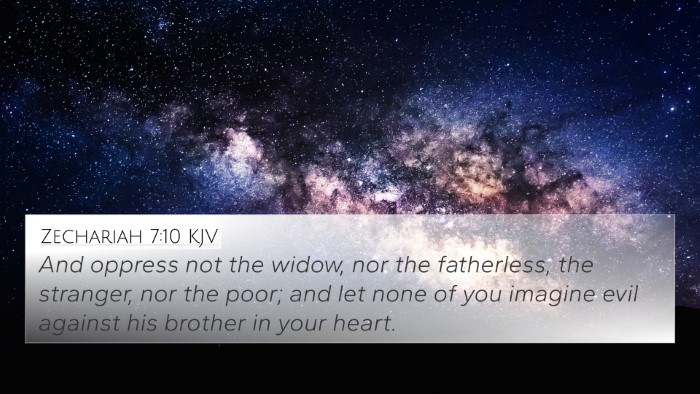 Zechariah 7:10 (KJV) »
Zechariah 7:10 (KJV) »
And oppress not the widow, nor the fatherless, the stranger, nor the poor; and let none of you imagine evil against his brother in your heart.
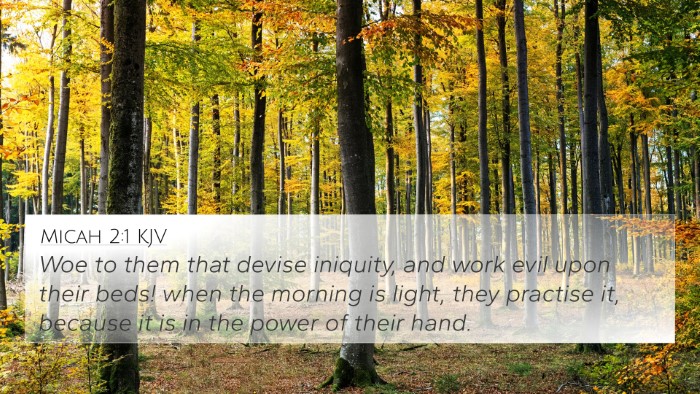 Micah 2:1 (KJV) »
Micah 2:1 (KJV) »
Woe to them that devise iniquity, and work evil upon their beds! when the morning is light, they practise it, because it is in the power of their hand.
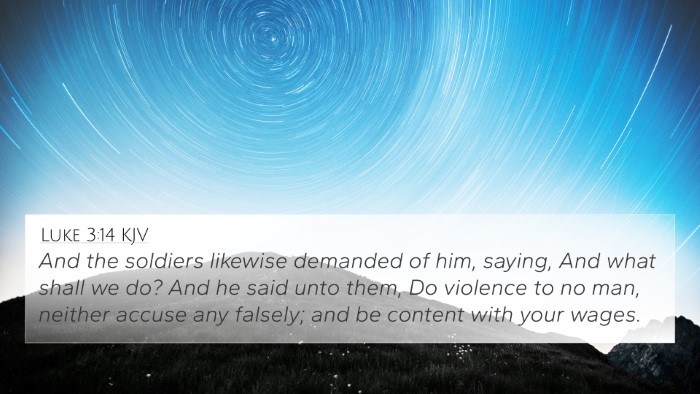 Luke 3:14 (KJV) »
Luke 3:14 (KJV) »
And the soldiers likewise demanded of him, saying, And what shall we do? And he said unto them, Do violence to no man, neither accuse any falsely; and be content with your wages.
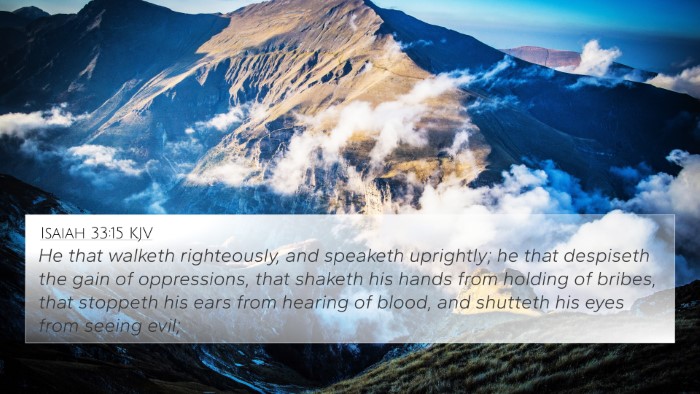 Isaiah 33:15 (KJV) »
Isaiah 33:15 (KJV) »
He that walketh righteously, and speaketh uprightly; he that despiseth the gain of oppressions, that shaketh his hands from holding of bribes, that stoppeth his ears from hearing of blood, and shutteth his eyes from seeing evil;
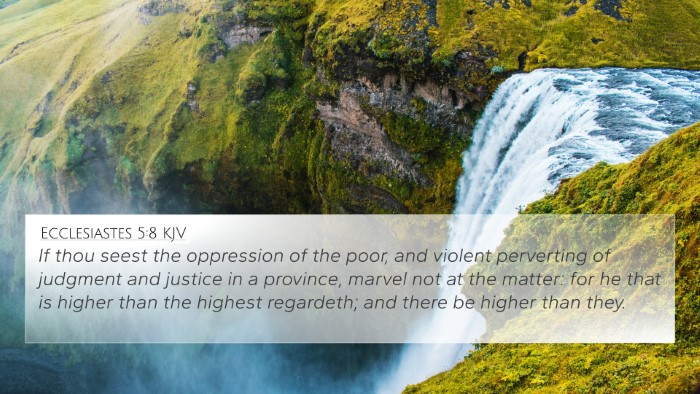 Ecclesiastes 5:8 (KJV) »
Ecclesiastes 5:8 (KJV) »
If thou seest the oppression of the poor, and violent perverting of judgment and justice in a province, marvel not at the matter: for he that is higher than the highest regardeth; and there be higher than they.
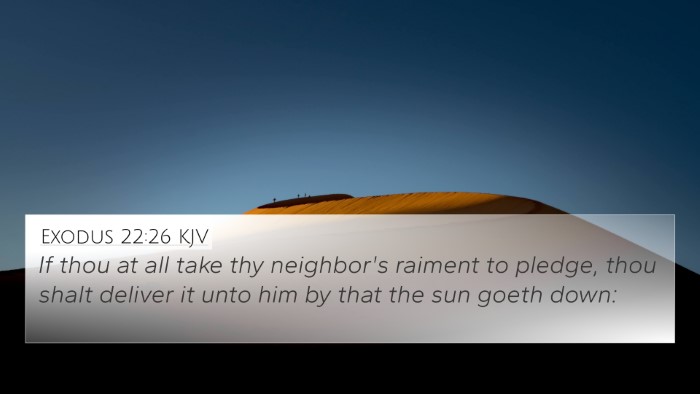 Exodus 22:26 (KJV) »
Exodus 22:26 (KJV) »
If thou at all take thy neighbor's raiment to pledge, thou shalt deliver it unto him by that the sun goeth down:
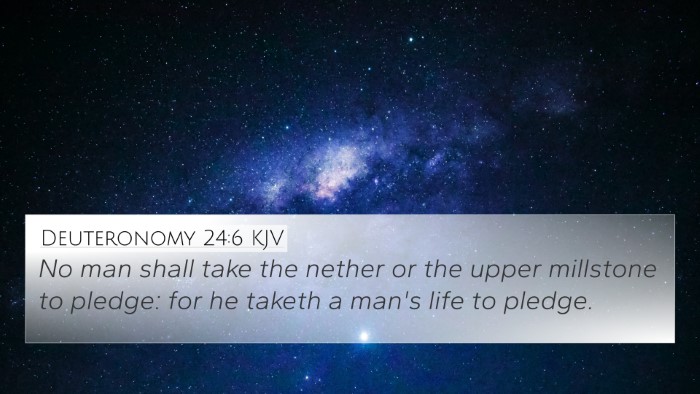 Deuteronomy 24:6 (KJV) »
Deuteronomy 24:6 (KJV) »
No man shall take the nether or the upper millstone to pledge: for he taketh a man's life to pledge.
